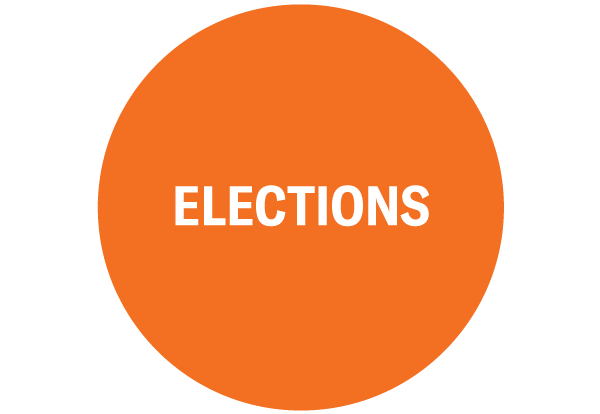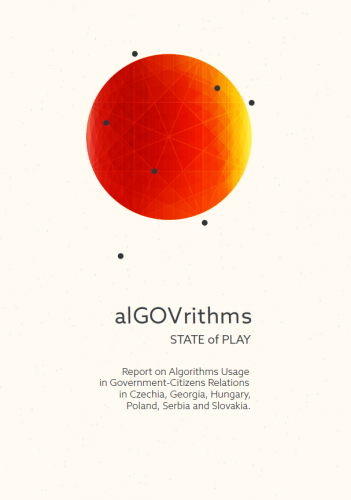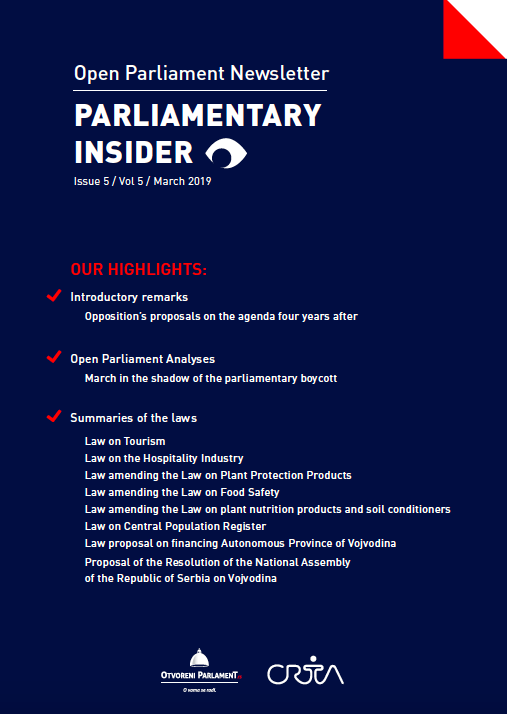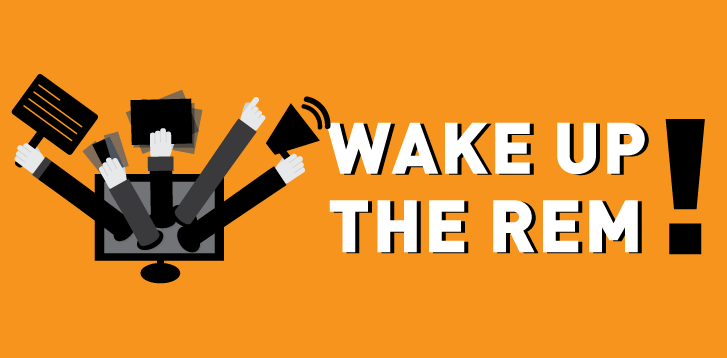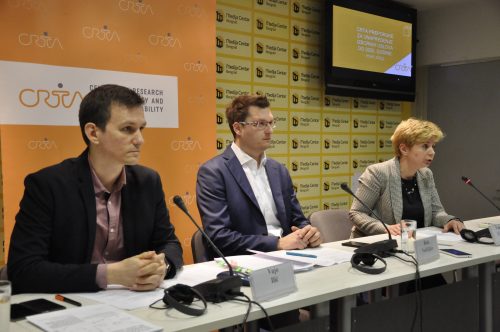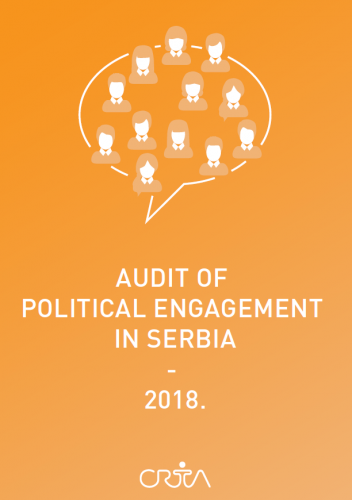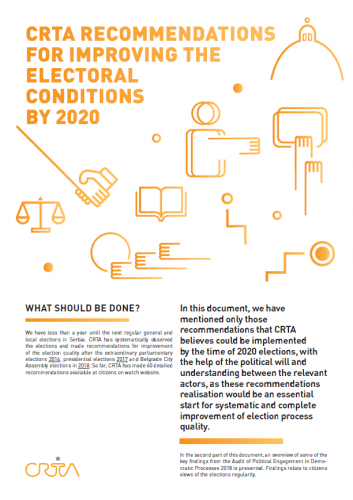The heated debate on algorithms which are part of the software used by the state and strongly influence citizens’ lives is present in Western countries, but it has not yet reached the same level in Central and Eastern Europe. This does not mean that automated decision processes do not exist in these regions. The report…
The Anti-Corruption Law which was adopted today does not allow curbing of public resources abuse and the prevention of public officials’ campaign, and is in fact yet another missed opportunity to improve legal framework for the conduct of the elections is Serbia, assessed the organisation CRTA.
“It is necessary to open up institutions and leaders for potential dialogues with young people who are eager for change and advancements, while the growing apathy among future generations can be overcome by education and information“, this is the conclusion of a panel discussion “Two angles – is there a dialogue between us?” held during the final event and the diploma awarding ceremony to the third generation of students of the Academy for Democracy organised by the CRTA with the support of the OSCE Mission to Serbia.
Parliamentary Insider for March 2019 brings monthly analyses of the work of the National Assembly of the Republic of Serbia, including law summaries and key novelties introduced by the adopted laws. A part of the opposition MPs carried on with their boycott in March as well, and in the Assembly Hall, the abuse of procedures and discussions on topics unrelated to the agenda continued. The agenda included two proposals from the opposition party League of Social Democrats of Vojvodina MPs.
The Regulatory Authority of Electronic Media issued an order requiring its employees to pay more attention to the processing of personal data, and to take all technical, personnel and organisational measures necessary to protect the data from unauthorised access, disclosure and any other misuse, as it was stated in the letter sent by the REM on March 19th to the Commissioner for Information of Public Importance and Data Protection. As stated in the letter, the order was forwarded to the executive director, general secretary and to all chiefs of services in the REM.
Following its systematic observation of the elections in previous three years, CRTA developed 60 detailed recommendations for improvement of electoral conditions, also available on the gradjaninastrazi.rs website. At the conference, CRTA presented the recommendations which could influence improvements if addressed by the 2020 elections and which enjoy the greatest citizen support.
CRTA presented recommendations for improvement of electoral conditions by 2020 at the conference held on March 25, 2019 at the Media Center Belgrade. Following its systematic observation of the elections in previous three years, CRTA developed 60 detailed recommendations for improvement of electoral conditions, also available on the gradjaninastrazi.rs website. At the conference, CRTA presented the recommendations which could influence improvements if addressed by the 2020 elections and which enjoy the greatest citizen support.
In the framework of the Open Parliament initiative, The Centre for Research, Transparency and Accountability (CRTA)
conducted the sixth consecutive “Audit of political engagement in Serbia” with the support of Ipsos Strategic Marketing.
First two audits (from 2013 and 2014) were supported by the British Embassy in Belgrade and National Democratic
Institute. The aim of this audit was to determine the level of the Serbian citizens’ readiness to participate in democratic processes
that imply a series of different forms of citizen participation – from voting at the elections to initiating particular
campaigns; and monitoring the changes of the degree of participation in time. This audit represents a particular overview of the democratic situation in society. The extent to which the citizens are
ready to engage in social processes, to exercise their civil rights and to influence the decision makers is an indicator of
“the state of health” of a society.
In this document, we have mentioned only those recommendations that CRTA believes could be implemented by the time of 2020 elections, with the help of the political will and understanding between the relevant actors, as these recommendations realisation would be an essential start for systematic and complete improvement of election process quality.
Our topics

Democratic culture
Because politics is not just for politicians. It is our human and citizen right to participate in the processes of making decisions which influence our lives. A dialogue has no alternative.

Free and fair elections
Because elections are the pillars of democracy. It is every citizen’s right to decide on whom to give his/her vote in free and fair conditions. Our vote is valuable and it can make a difference.

Open institutions
Because institutions serve the citizens. We need strong institutions with integrity which protect the public interest.

Free media
Because media should ask questions and critically analyse the reality. We need the media which protect the public interest and tackle the needs of the citizens.






